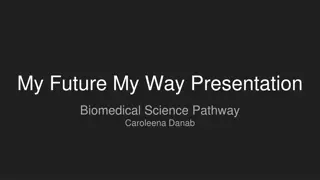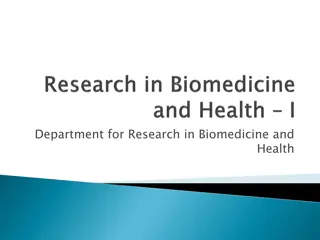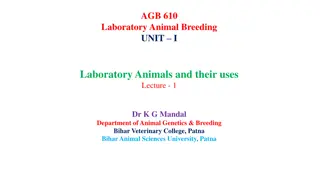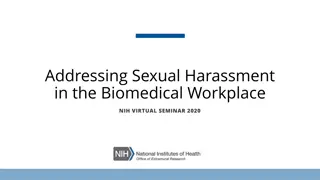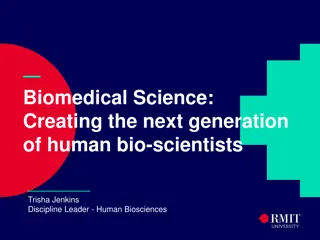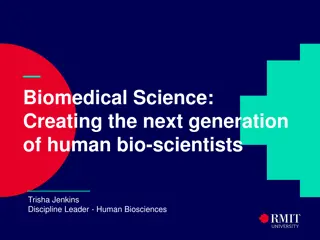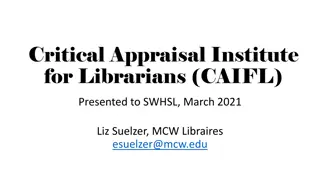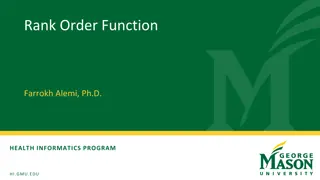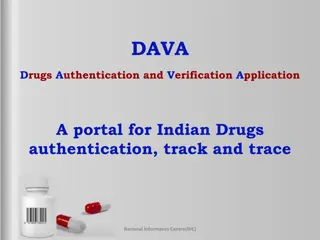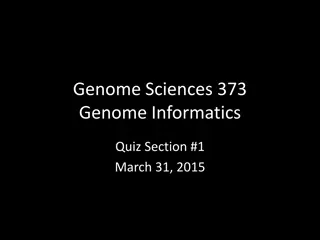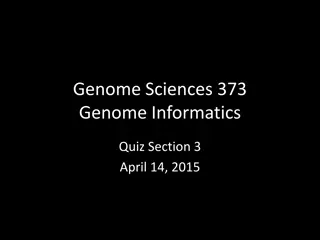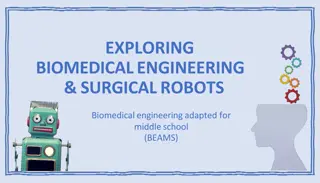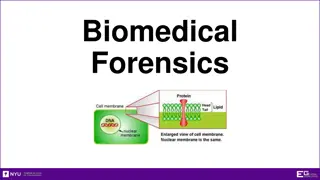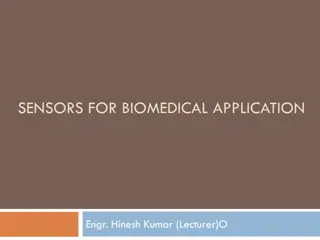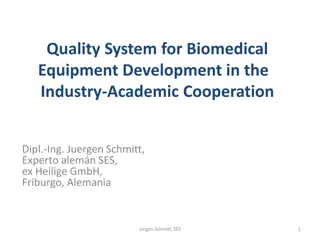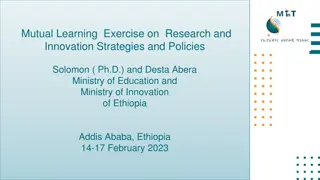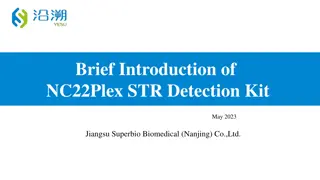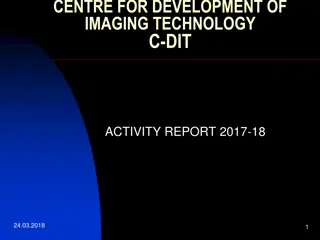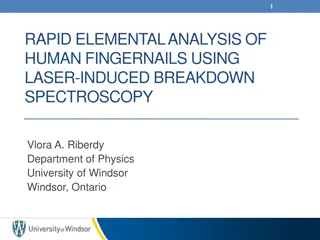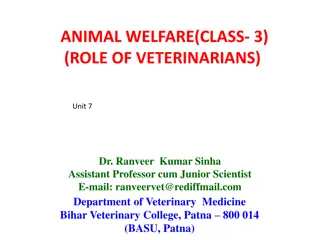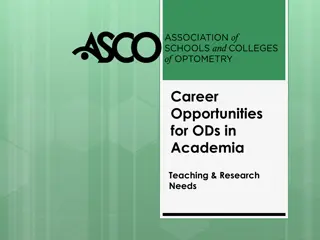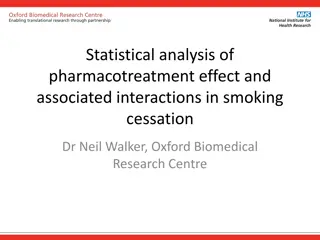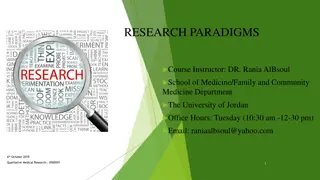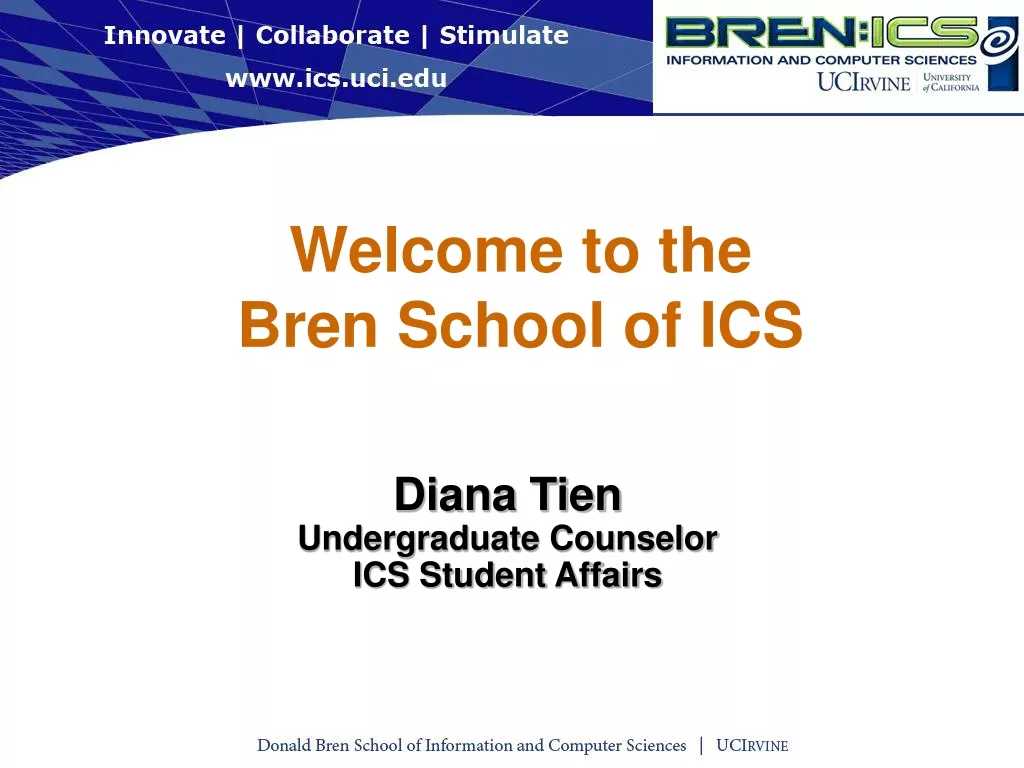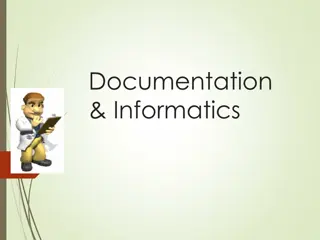Innovative Biomedical Informatics Research by Dr. Gregory F. Cooper
Dr. Gregory F. Cooper, a distinguished professor of Biomedical Informatics, leads cutting-edge research in applying machine learning, artificial intelligence, and Bayesian statistical methods to solve biomedical informatics challenges. His work includes individualized prediction of treatment effects, disease outbreak detection, and machine learning-based clinical alerting systems. Through projects funded by NIH, he collaborates with experts to develop novel approaches for improving healthcare outcomes.
Download Presentation

Please find below an Image/Link to download the presentation.
The content on the website is provided AS IS for your information and personal use only. It may not be sold, licensed, or shared on other websites without obtaining consent from the author. Download presentation by click this link. If you encounter any issues during the download, it is possible that the publisher has removed the file from their server.
E N D
Presentation Transcript
Gregory F. Cooper, M.D., Ph.D. Distinguished Professor of Biomedical Informatics Vice Chair of Research, Department of Biomedical Informatics gfc@pitt.edu 412-624-5100 The Cooper lab is developing and applying new machine learning, artificial intelligence, and Bayesian statistical methods to address biomedical informatics problems. Lists of publications: tinyurl.com/GFCGoogleScholar
Individualized Prediction of Treatment Effects Using Data from Both Embedded Clinical Trials and Electronic Health Records Problem: Predict individual treatment outcomes as accurately as possible using both EHR and embedded clinical trial data. Approach: A Bayesian method that combines observational (EHR) and experimental (embedded clinical trial) data to predict the outcomes of interventions. Status: Basic method has been developed and implemented; now being applied to data on monoclonal antibody treatment for COVID-19. Project PIs: Greg Cooper and Chris Seymour Funding: NIH/NHLBI R01HL164835 (08/2021 07/2024). Triantafillou S, Jabbari F, Cooper GF. Learning Treatment Effects from Observational and Experimental Data. In: Proceedings of the International Conference on Artificial Intelligence and Statistics (2023).
Detection and Characterization of Disease Outbreaks Using Probabilistic Modeling Problem: Detect and characterize multiple overlapping outbreaks of diseases being modeled, as well as detect and characterize an entirely novel outbreak disease. Approach: Use Bayesian methods to model and learn known outbreak diseases and detect novel diseases as an outlier relative to known outbreak diseases. Status: Data collection and wrangling is completed. In the process of developing and evaluating new algorithms for novel disease detection. Project PI: Greg Cooper Funding: NIH/NLM 1R01LM013509 (08/2021 07/2024) Aronis JM, Ferraro JP, Gesteland PH, Tsui F, Ye Y, Wagner MM, Cooper GF. A Bayesian approach for detecting a disease that is not being modeled. PLOS ONE, 15 (2020). Aronis JM, Ye Y, Espino J, Hochheiser H, Michaels MG, Cooper GF. A Bayesian system to track outbreaks of influenza-like illnesses including novel diseases (2023). medRxiv 2023.05.10.23289799
Machine-Learning-Based Clinical Alerting Problem: How to detect in real time a wide variety of medical errors from data in the EHR? Approach: Use machine learning and knowledge engineering to construct a probabilistic model of usual care. If current care of a patient is highly unusual according to the model, raise an alert. Status: Currently developing new methods to combine expert knowledge and machine learning for alerting. In ~1.5 years, perform an RCT of using the system at the bedside. Project PIs: Milos Hauskrecht, Gilles Clermont, David Huang Funding: NIH/NIBIB R01EB032752. (09/2022 08/2026) Role: Co-I. Hauskrecht M, Batal I, Hong C, Nguyen Q, Cooper GF, Visweswaran S, Clermont G. Outlier-based detection of unusual patient-management actions: An ICU study. Journal of Biomedical Informatics, 64 (2016) 211-221.
Interpretable Deep Learning Models for Translational Medicine Problem: Accurately predict tumor response to anti-cancer drugs. Approach: Use supervised deep learning to construct a latent representation between the tumor genome and drug sensitivity. Apply elastic net regression to use that latent represent to predict drug response. Status: Currently able to predict drug response moderately well from tumor genome data alone, without needing tumor gene-expression data. Project PI: Xinghua Lu Funding: NIH/NLM R01LM012011 (05/2020 04/2024) Role: Co-I. Ding, MQ., Chen, L., Cooper, GF., Young, JD., and Lu, X. (2017) Precision oncology beyond targeted therapy: Combining omics data with machine learning matches the majority of cancer cells to effective therapeutics. Molecular Cancer Research 16(2):269-278.
Discovery of Tumor-Specific Pathways and Communication Channels Problem: How to discover aberrant pathways and cell-cell communication channels in an individual tumor? Approach: Use an instance-specific causal discovery approach that learns a tumor-specific causal model. Status: Currently able to infer aberrant pathways and communication channels operating in the tumor microenvironment of head and neck cancer and use them to predict cancer survival. Project PI: Xinghua Lu Funding: An NIH U01 grant application is being submitted 11/2022. Chen X, Chen L, K rten CH, Jabbari F, Vujanovic L, Ding Y, Lu B, Lu K, Kulkarni A, Tabib T, Lafyatis R. An individualized causal framework for learning intercellular communication networks that define microenvironments of individual tumors. PLOS Computational Biology, 18 (2022).
Causal Discovery from Clinical and Biomedical Observational Data Problem: Discover causal relationships from observational clinical and biomedical data. Approach: Learn graphical models that capture statistical patterns in the data that are highly likely to be causal and not merely associational. Status: Ongoing basic research, as well as applications in cancer, severe sepsis, dementia, and kidney disease. Project PIs and Funding: Various Andrews B, Wongchokprasitti C, Visweswaran S, Lakhani CM, Patel CJ, Cooper GF. A new method for estimating the probability of causal relationships from observational data: Application to the study of the short-term effects of air pollution on cardiovascular and respiratory disease. Artificial Intelligence in Medicine, 139 (2023).
Additional Long Range Research Goals Combine decision theory and causal modeling & discovery to develop decisions aids that support clinical decision making Develop new machine learning algorithms for learning models that are optimized to predict well for individual patients Johnsona A, Coopera GF, Visweswarana S. A novel personalized random forest algorithm for clinical outcome prediction. In: Proceedings of MEDINFO 2021 (2022). learn a patient- specific model patient-specific model for current case training set of past patient cases predict outcome prediction for current case current patient case





